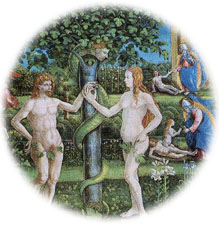

When a student writes about a poem or story, how can the student's reader (especially the instructor) say the paper is "right" or "wrong"? When it comes to literature, isn't it all a matter of opinion? What makes the instructor's opinion more valid than the student's?

In writing about literature, there is room, indeed, for a great deal of subjectivity. We respond to art with feelings, and feelings are never wrong. Still, in trying to document how feelings arise — to describe those elements within the text that spark those feelings in us — some people will do a more careful job than others.
It is, of course, possible to be mistaken about literature, to base our feelings and judgments on a misreading — for a variety of reasons.
In introducing a poem by Theodore Roethke, once, I told students that Roethke's father owned and operated greenhouses, and that little Theodore apparently spent a great deal of time there in his youth. Memories of hours spent in his father's greenhouses were precious to the poet and are recounted in a number of poems. There are many vivid lines about Roethke's father working among the living, growing things of the nursery basement: the steam, the water, the roots, stems, leaves, flowers, dirt, and smells. Somehow, a student put this information to misuse in reading "My Papa's Waltz." In the lines in which Roethke describes the drunken dance of the father, just returned from work, with his small son — "He beat time on my head / with a palm caked hard by dirt." — the student saw the father whacking his boy's head with a palm plant! That is wrong. It might be understandably wrong, but it's wrong. The palm of the father's hand is packed hard by dirt because he had been working all day with plants.
Another quick example: Adrienne Rich refers in one of her poems to being kept awake at night by the sound of "the taps." One student allowed that this meant she must have lived next to a military cemetery where the doleful sound of a trumpet playing "Taps" kept her awake. It is far more likely that Rich was referring to the drip-drip-drip of a leaky faucet ("tap" being another word for spigot or faucet).
"My Papa's Waltz" is a good example of another kind of misreading, a judgment that we bring to a poem because of certain predispositions, cultural and personal. We should read the poem first. We reprint it below, but we recommend that you attend the Web site of the American Academy of Poets where you can actually listen to a recording of Theodore Roethke (who died in 1963) reading this famous verse.
My Papa's Waltz
![]() Theodore Roethke
Theodore Roethke
The whiskey on your breath
Could make a small boy dizzy;
But I hung on like death:
Such waltzing was not easy.
We romped until the pans
Slid from the kitchen shelf;
My mother's countenance
Could not unfrown itself.
The hand that held my wrist
Was battered on one knuckle;
At every step you missed
My right ear scraped a buckle.
You beat time on my head
With a palm caked hard by dirt,
Then waltzed me off to bed
Still clinging to your shirt.
Beginning sometime in the 1990s (or perhaps slightly earlier?), students began to read this as a poem about child abuse. The scene is drunkenly violent, they say, and they cite the lines about hanging on "like death" and the mother's unsmiling face as evidence. The "buckle," they claim, and the phrase "beat time on my head" is further evidence of an abusive situation. Is this interpretation of the poem wrong? It would certainly be a surprise to earlier generations of readers. Readers in the fifties, sixties, and seventies saw a father roughhousing with his son after a hard day's work and then "waltzing [him] off to bed." That's not abuse; in fact, it's love. If readers had seen "My Papa's Waltz" in the context of other poems from Roethke's volume of poetry The Lost Son (1948), they would have felt the enormous respect and love Roethke felt for his father as well, and that would have carried over into their reading of "My Papa's Waltz." (One could argue that we hear this, too, in the measured, elegiac tone of Roethke's own reading of these lines.)
But things have changed. We worry much more today than we did thirty, forty years ago about the effects of alcohol on the family, especially on young children. In a public place, a mother giving her child a whack on the ears might well be reported to the police. In the 1950s, some comedians — like the late Dean Martin, Jackie Gleason, and (the master of the genre) Foster Brooks — made a good living pretending to be inebriated on stage. People thought it was great fun. Most people wouldn't laugh at that anymore, or at least it would make them nervous. Nowadays, we bring to the reading of "My Papa's Waltz" a cultural perspective that obscures the boundaries between the boisterous play of father-son roughhousing and domestic abuse.
Both readers of "My Papa's Waltz" — those who see abuse in the poem and those who do not — have to admit that the poem is more richly ambiguous than they might have thought on first reading. There is possibly a darkness to it that we would be foolish to ignore, but there is also love in that poem that we can miss only by reading with one eye (and our hearts) closed.
If readers are not careful, a poem can be adopted as a kind of cultural icon in a mistaken reading. Robert Frost's "The Road Not Taken" is one of the most beloved and often quoted poems of the twentieth century. The poem depicts a sojourner in the woods coming to a point where he must make a choice, which path to take? Again, we can hear the poet himself (who died the same year as Roethke, forty years ago) read this poem thanks to the American Academy of Poets.
The Road Not Taken
![]() Robert Frost
Robert Frost
Two roads diverged in a yellow wood,
And sorry I could not travel both
And be one traveler, long I stood
And looked down one as far as I could
To where it bent in the undergrowth;
Then took the other, as just as fair,
And having perhaps the better claim,
Because it was grassy and wanted wear;
Though as for that the passing there
Had worn them really about the same,
And both that morning equally lay
In leaves no step had trodden black.
Oh, I kept the first for another day!
Yet knowing how way leads on to way,
I doubted if I should ever come back.
I shall be telling this with a sigh
Somewhere ages and ages hence:
Two roads diverged in a wood, and I —
I took the one less traveled by,
And that has made all the difference.
This poem greatly appeals to students who regard themselves as individualists. "I did it my way," they sing, and declare that Frost has cut for himself a swath through the woods, ignoring the easy way and choosing a path eschewed by just about everyone else. Thus it is that we must bravely define ourselves for life, students claim, not conforming to social pressures but taking the road "less traveled by." What this reading seems to ignore, however, is that the two paths in the wood are pretty much the same: "the passing there / Had worn them really about the same, / And both that morning equally lay / In leaves no step had trodden black." There is virtually nothing to choose between these two paths. The poet's choice is all but random, and that is really the point of the poem. The important choices we make in life, the ones that seem to make "all the difference" are often random in nature. Later on in life (the poet knows), he will swear ("with a sigh") to anyone who will listen, that he was the brave one, a pioneer, that he took the path "less traveled by." But the evidence of the poem is far less brave, far more random — and probably far more true about how our life paths are determined.

Sometimes, too, it is possible to be wrong about literature because language changes over the centuries and even over the course of a few years. When William Wordsworth celebrates the daffodils in "I wandered lonely as a cloud" and says, "A Poet could not but be gay / In such a jocund company!" the word "gay" means only happiness and shares none of the meanings associated with homosexuality that we connect with that word today.
So is it possible to be wrong in writing about literature? Of course it is. Usually, however, it is not the same kind of clearcut mistake that we make in Chemistry 101 or (God forbid!) in Nursing 110. We must be precise as we examine the "evidence" of a poem or a story or a novel and attempt to share our feelings and conclusions with others. That is all that our readers can ask for: that we be true to the language, the text itself.
*There's a wonderful recording of Henry Reed's rendering of "Naming of Parts" (along with another person's voice doing the instructor) at
http://www.solearabiantree.net/namingofparts/audio.html .